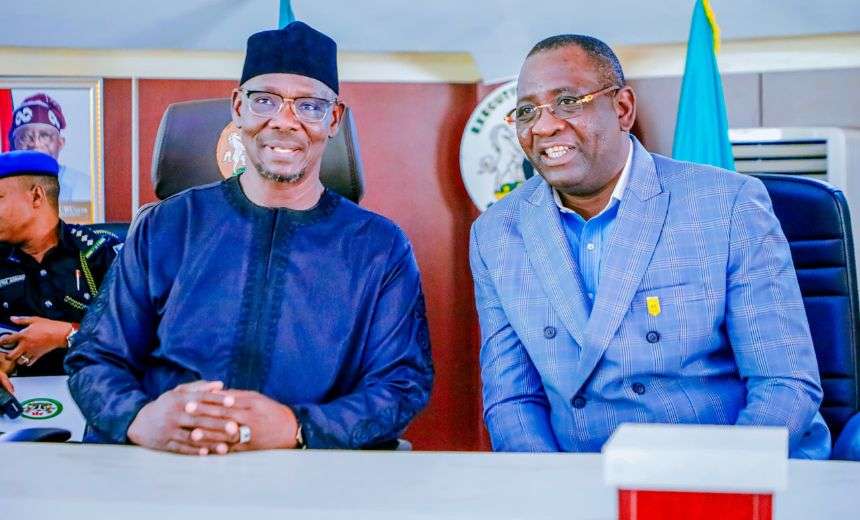Nasarawa State Governor Abdullahi Sule has described the recent wave of killings in Benue State as senseless and unacceptable.
Governor Sule, who also serves as the Chairman of the North Central States Governors Forum, made the condemnation during a condolence visit to Benue State following a series of deadly attacks, the most recent in Yelwata, where close to two hundred people were murdered in an overnight killing spree
He lamented over the huge loss of lives and widespread destruction across affected communities in Benue. He urged his Benue counterpart, Governor Hyacinth Alia, to remain resolute and focused in confronting the security challenges bedeviling the state.
He said Nasarawa State will continue to stand by Benue and work towards a lasting solution to the problem
The Governor also commended the efforts of security operatives in Nasarawa State, particularly the Commissioner of Police, Shettima Jauro, and other security heads, disclosing that arrests have already been made in the Udege area in connection with the Benue killings.
Governor Sule also announced a donation of one hundred and fifty million naira to add to ongoing relief efforts in Benue State
MUST READ: PDP Condemns Benue Killings, Says President Tinubu Unserious, Unconcerned
Receiving the delegation on behalf of Governor Hyacinth Alia, Benue State Deputy Governor, Sam Ode, expressed appreciation to Governor Sule for his solidarity and concern during this difficult time. He stressed the need for both states to collaborate closely in tackling the growing insecurity threat
He said it is important that the two neighbouring states work together to defeat criminals whose aim is to disrupt the peaceful coexistence between both states, adding that a change in security strategy is urgently required if Nigeria is to win the war against these elements who have infiltrated communities across the region.
Benue State has witnessed a disturbing surge in attacks in recent months, with hundreds of lives lost and colossal amounts of property destroyed in several communities.
(Editor: Oloyede Oworu)








